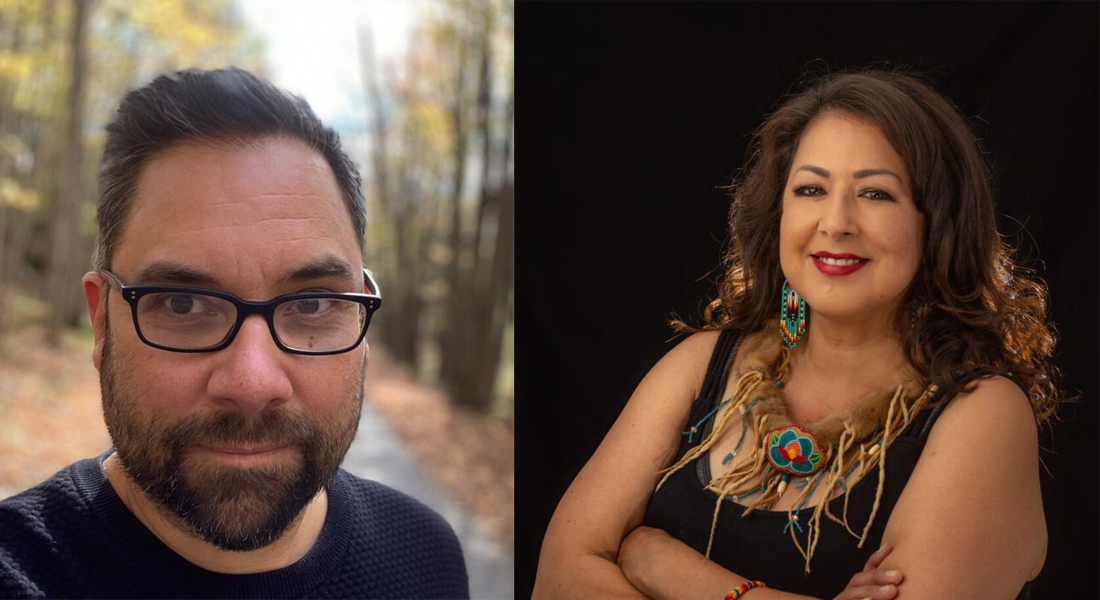2023 FRIENDS OF CANADIAN MUSIC AWARD WINNERS
The Canadian League of Composers and the Canadian Music Centre are thrilled to announce Dylan Robinson as the winner of the 2023 Friends of Canadian Music Award. Dylan has selected Sherryl Sewepagaham to receive support as an emerging artist.
Dylan Robinson is one of the most important musical scholars working in Canada today. A xwélmexw artist, curator, and writer, his research focuses on “the sensory politics of Indigenous activism and the arts, and questions how Indigenous rights and settler colonialism are embodied and spatialized in public space.” Dylan’s critically acclaimed 2020 book Hungry Listening: Resonant Theory for Indigenous Sound Studies has become mandatory reading for Canadian composers, performers, musicologists, and really anyone curious about the world of Canadian contemporary classical music. From 2015-2022, Dylan served as the Canada Research Chair in Indigenous Arts at Queen’s University, and in June 2022 was appointed as an Associate Professor at the University of British Columbia School of Music. His current work focuses on interdisciplinary performance practices for classical and new music. He is also chair of the Canadian Music Centre’s Indigenous Advisory Council. Across the various forms his research and practice take, he seeks to prioritize Indigenous resurgence and convey the sensory vitality of Indigenous life.
As one of our jury members said: sometimes friends are there to pat you on the back and tell you what a good job you’ve done, but other times, friends let you know that you need to get your proverbial stuff together. Dylan’s fearless and incisive work has raised critically important questions, holding up a mirror to Canada’s musical community, both past and present, and asking us all to question long-held assumptions and confront uncomfortable truths about our community. This is especially true for legacy organizations such as the CLC and the CMC. Both organizations have their roots in 1950s cultural policy that prioritized European and settler forms of art-making (including the use of Indigenous Cultural Intellectual Property) during a time of violent state policies targeting Indigenous communities including residential schools, the Potlatch ban, and the 60s scoop. We are incredibly grateful to Dylan for undertaking this work.
Sherryl Sewepagaham has an extensive career as a Cree singer-songwriter but has recently started to compose works for choirs, including Musica Intima, the Canadian Chamber Choir, and ProCoro Canada. Her work integrates Cree language into different musical forms that put those musical forms into the service of Cree language pronunciation and word meaning. While a typical compositional process might involve making Cree language fit Western musical forms, Sewepagaham’s work instead allows Cree language itself to sing. From an Indigenous perspective, Sewepagaham’s focus on Cree language demonstrates a sophisticated practice of Indigenous resurgence, where song is used – as Indigenous people have always done – as a primary vehicle to convey Indigenous knowledge.

